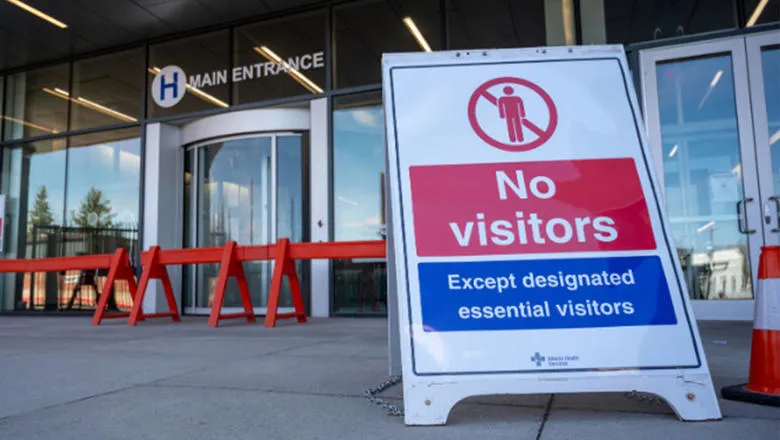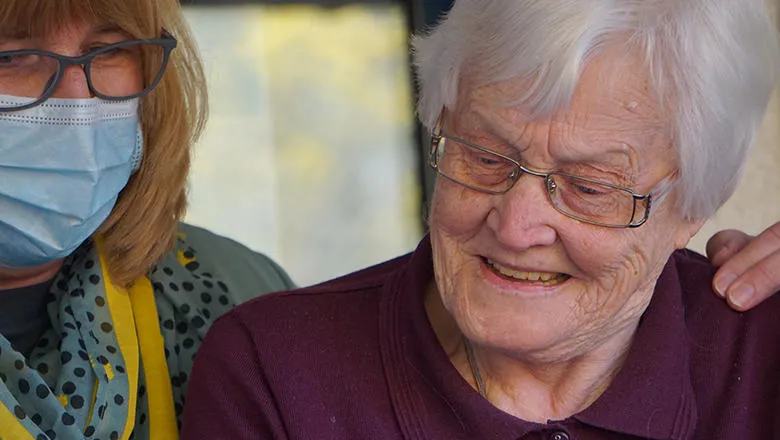
Mrs Rachel Chambers BSc, MSc
Cicely Saunders International PhD Training Fellow
- NIHR Pre-Doctoral Research Fellow
Biography
Mrs Chambers graduated from the University of Westminster in 2016 with a degree in Psychology. She then completed an MSc in Clinical Mental Health Sciences at University College London, graduating with a distinction in 2017. She joined King’s in 2018 as a Research Assistant within the School of Population Health and Environmental Sciences where she worked on the South London Stroke Register (SLSR) and on the process evaluation of the RETurn to work After stroKE (RETAKE) trial. In 2020 she joined the Cicely Saunders Institute as a Research & Projects Coordination Assistant.
She currently works on the CovPall study which aims to improve palliative care for people affected by the COVID-19 pandemic by sharing learning. Ms Chambers is also involved in CovPall-Connect which uses national health and care data to increase the findings from CovPall.
Research interests:
- Patient outcome measures
- Evidence based policy-making
Research profile
Research

Evaluation of the COVID-19 Pandemic Response in Palliative & End of Life Care: Connecting to Boost Impact & Data Assets
The CovPall-Connect project provides an opportunity for national data linkage on the palliative care response to COVID-19.
Project status: Ongoing

Better End of Life Project
Understanding experiences of dying, death, and bereavement in the UK, and compelling local and national policy-makers to act to improve people’s experiences.
Project status: Ongoing

CovPall: Rapid Evaluation of the COVID-19 Pandemic Response in Palliative & End of Life Care
The CovPall Project aims to understand more about how palliative care services and hospices are responding to COVID-19.
Project status: Ongoing
News
UK COVID policies may have disproportionally impacted ethnic minorities at the end of life
New research has found UK wide COVID-19 policies may have disproportionately impacted people from ethnic minority groups at the end of life.

Research shows end of life care was not seen as an essential, frontline service in the pandemic
Findings from a new report prompt calls for proper recognition and sustainable funding of end of life care and bereavement support.

How specialist palliative care services have coped in response to COVID-19
Services have been highly adaptive and embraced low-cost innovations during the pandemic.

Palliative care needs better integration with health care systems for this and future pandemics/epidemics
Findings from a multinational study into the experience of palliative care services highlights need for better integration and recognition in health services...

Funding boost for research into palliative care during COVID-19
Additional funding has been awarded for a study into the palliative care pandemic response.

Research

Evaluation of the COVID-19 Pandemic Response in Palliative & End of Life Care: Connecting to Boost Impact & Data Assets
The CovPall-Connect project provides an opportunity for national data linkage on the palliative care response to COVID-19.
Project status: Ongoing

Better End of Life Project
Understanding experiences of dying, death, and bereavement in the UK, and compelling local and national policy-makers to act to improve people’s experiences.
Project status: Ongoing

CovPall: Rapid Evaluation of the COVID-19 Pandemic Response in Palliative & End of Life Care
The CovPall Project aims to understand more about how palliative care services and hospices are responding to COVID-19.
Project status: Ongoing
News
UK COVID policies may have disproportionally impacted ethnic minorities at the end of life
New research has found UK wide COVID-19 policies may have disproportionately impacted people from ethnic minority groups at the end of life.

Research shows end of life care was not seen as an essential, frontline service in the pandemic
Findings from a new report prompt calls for proper recognition and sustainable funding of end of life care and bereavement support.

How specialist palliative care services have coped in response to COVID-19
Services have been highly adaptive and embraced low-cost innovations during the pandemic.

Palliative care needs better integration with health care systems for this and future pandemics/epidemics
Findings from a multinational study into the experience of palliative care services highlights need for better integration and recognition in health services...

Funding boost for research into palliative care during COVID-19
Additional funding has been awarded for a study into the palliative care pandemic response.

